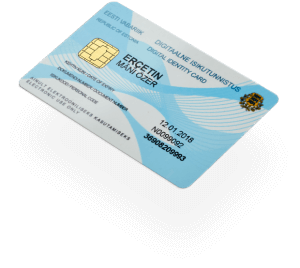
A proposal to issue so-called estcoin could make the Republic of Estonia the first country in the world to run an initial coin offering (ICO) for a government-managed crypto token.
The Republic of Estonia is considering launching its own crypto token, estcoins, which would be made available to e-residents looking to support Estonia’s broader “new digital nation” plan.

The estcoin proposal was unveiled on Tuesday in a blog post by Estonia e-Residency program managing director Kaspar Korjus. In the post, Korjus said that a government-supported ICO “would give more people a bigger stake in the future of our country and provide not just investment, but also more expertise and ideas to help us grow exponentially.”
The funds raised through estcoins could be used for instance to invest in new technologies and innovations for the public sector. A large portion could be allocated to a community-run venture capital fund on behalf of investors, and used to support Estonian companies, including those established by other e-residents.
The funds could be managed through a public/private partnership and only used as described in the agreement to help Estonia fulfill its digital country vision.
Ethereum creator Vitalik Buterin said estcoins could be used to incentivize investors to support the success of a country in a way that isn’t possible through traditional fundraising methods.
“An ICO within the e-Residency program would create a strong incentive alignment between e-residents and this fund, and beyond the economic aspect makes the e-residents feel like more of a community since there are more things they can do together,” Buterin said.
“Additionally, if these estcoins are issued on top of a blockchain, then it would become easy and convenient to use them inside of smart contracts and other applications.”
For some industry observers, estcoin could directly compete against decentralized cryptocurrencies such as Bitcoin and Ethereum, which, despite having surged in value in recent months, have lacked popular trust.
“These initiatives were founded independently from the governments and while the lack of legislation and government restrictions has been the cornerstone for the growth, it is also the main challenge for further scaling of these crypto coins,” said Erik Ehasoo, a consultant and partner of Rubiks Digital, a digital innovation agency.
“This is where a country like Estonia could step in and bring cryptocurrencies to the next level.
“In terms of regulation and trust, it would do to digital currency what it did to digital services — start a more decisive dialog between organizations which could lead to a widespread acceptance of these services, or in the case of money, a new currency.”
Other countries have considered launching their own cryptocurrency, including China and Russia. But Estonia’s small and digitally advanced nation has several competitive advantages over other countries, including the nation’s widely successful e-Residency program.
“Estonia has a clear advantage in this area due to its advanced digital infrastructure and its e-Residency program,” Korjus said.
“No other country has come close to developing both the technology and the legal frameworks that would enable them to introduce and securely manage tradable crypto assets globally.”

Estonia has over 22,000 e-residents signed up from 138 countries. The weekly application rate is currently higher than Estonia’s weekly birth rate.
“They make an enormous contribution to Estonia in return for the opportunities that we deliver to them,” Korjus said. “The ability to start a location-independent company is now the main ‘product’ that’s driving the growth of e-Residency.”
Korjus is looking for community feedbacks on the estcoin proposal. If there’s support, the next stage, prior to the ICO, would be to provide a whitepaper that outlines the value of estcoins and explains how the investment would be used to develop the digital nation. Then, the estcoin project would likely begin as a pilot project that would be scaled up based on demand.

